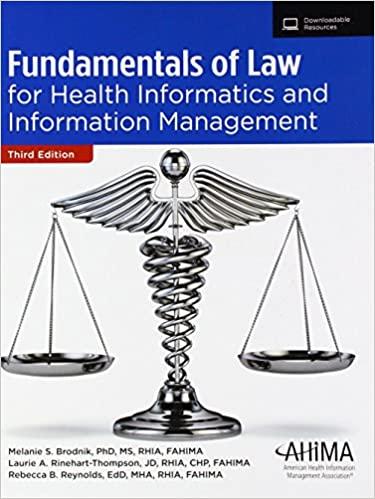Question
Answer All The Question 1. If a Company limited by shares does not lodge its own articles, it may adopt __________. a) Table B of
Answer All The Question
1. If a Company limited by shares does not lodge its own articles, it may adopt __________.
a) Table B of the Fourth Schedule
b) Table A of the Fourth Schedule
c) Table C of the Fourth Schedule
d) Table D of the Fourth Schedule
2. A company obtains its separate legal entity status __________.
a) before it is incorporated.
b) from the date stated in the certificate of incorporation.
c) once it has been registered.
d) from the date of the application of name.
3. The partnership deed generally includes the following __________.
a) Nature of business
b) Name of firm
c) Location of business
d) All of the above
4. Who is called Buyer?
a) A person who buys or agrees to buy goods.
b) A person who buys goods.
c) A person who agrees to buy goods.
d) Who offers consideration
5. A promise to give RM5,000.00 per month pocket money to his son B. If A does not give the pocket money __________.
a) B has no remedy against A.
b) B can sue his father.
c) B can accept a lower pocket money also.
d) B has to give RM5,000.00 to his father.
6. A lends RM50,000.00 to B for a year. After one year A's right to recover the money from B is a __________.
a) right in personal.
b) civil right.
c) moral right.
d) right in rem.
7. Which one of the following is the CORRECT sequence of stages in the formation of a company?
a) Promotion, Incorporation, Certificate of commencement, capital subscription
b) Promotion, incorporation, capital subscription, the commencement of business
c) Promotion, the commencement of business, incorporation, capital subscription
d) Incorporation, capital subscription, promotion, the commencement of business
8. The Law of Contract is nothing but __________.
a) a child of day-to-day politics.
b) a child of commercial dealing.
c) a child of religion.
d) a child of economics.
9. Which of the following cooperative society is established to help small producers in selling their products?
a) Marketing cooperative society
b) Consumers cooperative society
c) Credit cooperative society
d) Producer cooperative society
10. Valid contracts __________.
a) are made by free consent.
b) are made by competent parties.
c) have lawful consideration and lawful object.
d) all of the above.
11. __________ is made by words written.
a) Express contract
b) Unlawful contract
c) Implied contract
d) Tacit contract
12. What is C.I.F. contract?
a) selling price with tax
b) cost, insurance & fright
c) selling price with VAT
d) selling price with rent
13. An agreement consists of reciprocal promises between at least __________.
a) four parties.
b) two parties.
c) six parties.
d) three parties.
14. An agreement consists of reciprocal promises between at least __________.
a) four parties.
b) two parties.
c) six parties.
d) three parties.
15. Which of the following is NOT characteristic of a private company?
a) No restriction on the transfer of its shares.
b) Offer of shares or debentures to the public is prohibited.
c) Prohibit any invitation to the public to deposit money with the company.
d) The maximum number of its member is 50.
16. The life of sole proprietorship business is __________.
a) Stable
b) Long life
c) Very short life
d) Unstable
17. Which of the following statement is NOT true about a minor partner?
a) He shares only profits
b) He can inspect books of accounts
c) He has to bear losses also
d) He has an option to continue with a firm even after attaining majority
18. What does delivery means?
a) Agreement to transfer of possession from one person to another.
b) Voluntary transfer of possession from one person to another person.
c) Transfer of possession from one person to another person in written.
d) None of these
19. In case of __________, the Court held that Company could rescind the contract, the purchase money was returned to the company and the island transferred back to the syndicate due to non-disclosure of promoter's interest in a dealing with the proposed company.
a) Erlanger v. New Sombrero Phosphate Co.
b) Cosmic Insurance Ltd. V. Khoo Chiang Poh
c) Newborne v. Sensolid (Great Britain) Ltd.
d) Erlanger v. Phosphate Co. Sdn. Bhd
20. In agreements of a purely domestic nature, the intention of the parties to create legal relationship is __________.
a) not relevant at all.
b) required to the extent of consideration.
c) to be proved to the satisfaction of the court.
d) presumed to exist.
Step by Step Solution
There are 3 Steps involved in it
Step: 1

Get Instant Access to Expert-Tailored Solutions
See step-by-step solutions with expert insights and AI powered tools for academic success
Step: 2

Step: 3

Ace Your Homework with AI
Get the answers you need in no time with our AI-driven, step-by-step assistance
Get Started


